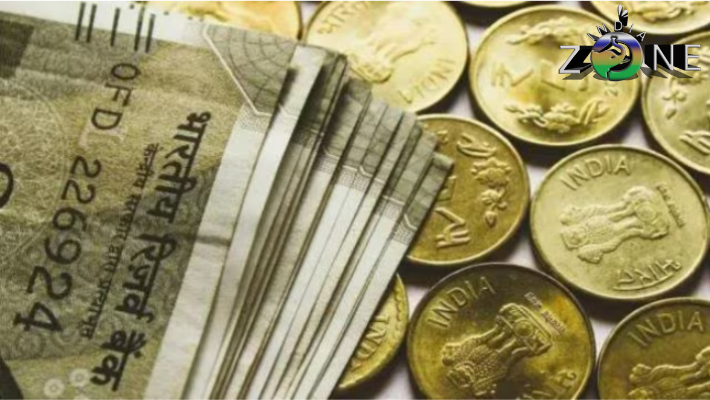
By prolonging the prohibition on onion exports until further orders, the Indian government has taken immediate steps to guarantee the availability of onions domestically and to stabilize their market prices. An important division of the Ministry of Commerce and Industry, the Directorate General of Foreign Trade (DGFT), has announced an extension of this policy, which was initially scheduled to expire on March 31, 2024. The government’s continued efforts to reduce price volatility and allay consumer worries about onions’ affordability—a basic ingredient in Indian cooking—are reflected in the extension.
This move comes after a string of government actions meant to regulate the onion market. The export of onions was outlawed on December 8, 2023, which was a big step in protecting domestic supply. Recognizing the value of preserving diplomatic and commercial ties, the government did, however, permit exceptions, allowing the export of 64,400 tonnes of onions through the National Cooperative Exports Ltd (NCEL) to friendly countries like Bangladesh and the United Arab Emirates on a case-by-case basis.
The Center had already announced the sale of buffer onion stockpiles at a subsidized rate of ₹25 per kg in retail marketplaces beginning in October 2023 in an additional effort to lessen the financial strain on consumers. This action was a component of a larger plan to improve availability and affordability at times of high demand. In addition, on October 28, 2023, the government established a minimum export price (MEP) of $800 per tonne, which remained in force until the end of the year, with the goal of discouraging exports and preserving a stable supply within the nation. In addition, a 40% export levy on onions was imposed through December 31, 2023, underscoring the government’s resolve to stabilize the market.
These actions are taken in light of the projected 22.7 million tonnes of onion production during the 2023 rabi season. The government’s proactive and comprehensive strategy for controlling the supply and demand of onions highlights its dedication to guaranteeing food security and minimizing the effects of price variations on the average citizen. The government is attempting to preserve a balance between domestic availability and market stability by controlling exports and utilizing buffer stockpiles; this is a calculated reaction to the difficulties involved in managing agricultural commodities.
In a significant move aimed at stabilizing the domestic market, the Indian government has announced the continuation of the export ban on onions beyond its previous deadline of March 31, 2024. This decision, articulated through a notification by the Directorate General of Foreign Trade (DGFT) dated March 22, underscores the government’s proactive measures to ensure the availability of onions within the country and to keep their prices in check. The DGFT, a pivotal branch of the Commerce Ministry responsible for the regulation of India’s exports and imports, plays a crucial role in shaping trade policies that impact the agricultural sector and, by extension, the common citizen.
In response to worries about onion availability and price stability, the export prohibition has been extended, demonstrating the government’s commitment to ensuring the domestic supply of this vital good. As a mainstay of Indian cuisine, onions are important both commercially and gastronomically. Variations in their cost or availability can have a significant impact on food inflation rates as well as household budgets.
The government made a number of regulatory actions in recent months to control the quantity and price of onions, which led to this decision. These policies frequently show how the government is addressing the complex interplay between the demands for domestic consumption and the dynamics of the market and agricultural output. The export prohibition was first imposed in an attempt to stop price inflation and a shortage of supplies that could have a negative impact on consumers all throughout the country.
By extending the export prohibition “until further orders,” the government demonstrates how adaptable and dynamic its trade and agricultural policies are, prepared to change in response to shifting crop production conditions, market demands, and broader economic conditions. This strategy makes it possible to respond specifically to unanticipated events like crop failures, heavy rains, or other elements that might have an impact on the availability and production of onions.
The government’s continuing ban on onion exports demonstrates that domestic requirements take precedence over the money earned from this commodity’s foreign trade. It demonstrates a recognition of the importance of food security and stable onion prices in preserving economic stability and averting inflationary pressures that could affect a large portion of the Indian populace. By taking such actions, the Commerce Ministry and the DGFT show how important it is to protect Indian consumers’ and farmers’ interests while striking a balance between the intricate interactions between home demands and the international market.

The recent statistics indicating a significant surge in the price of onions across India have underscored a pressing economic concern. As of Thursday, the all-India daily average price of onions stood at Rs 57.11 per kg, marking a staggering increase of 97.95% compared to the same period a year ago. This sharp rise in prices not only affects the daily budget of millions of households but also highlights the broader challenges of food inflation and supply chain management within the country. Such a dramatic year-on-year increase reflects the volatility in agricultural markets and underscores the need for comprehensive strategies to stabilize food prices and ensure affordability for the average consumer.
The government is making efforts to manage agricultural resources and prioritize food security, as seen by a direction from the Center to all sugar mills and distilleries in the country. The rule makes it clear that sugarcane juice or sugar syrup cannot be utilized to manufacture ethanol during the 2023–2024 ethanol supply year (ESY), which runs from November to December. This decision is a deliberate shift in policy intended to ensure a sufficient supply of sugarcane for the production of sugar, a staple food in Indian households.
The mandate to sugar mills and distilleries is an attempt to avert shortages and price increases in the sugar market, which might parallel the circumstances facing the onion market at the moment. The government wants to strike a balance between the conflicting demands of energy production and food security, therefore it is limiting the use of sugarcane for the manufacturing of ethanol, a biofuel that has been marketed as a greener alternative to fossil fuels. This action highlights the difficulties in managing agricultural outputs when crops are grown for more than one purpose, such food production and biofuel.











